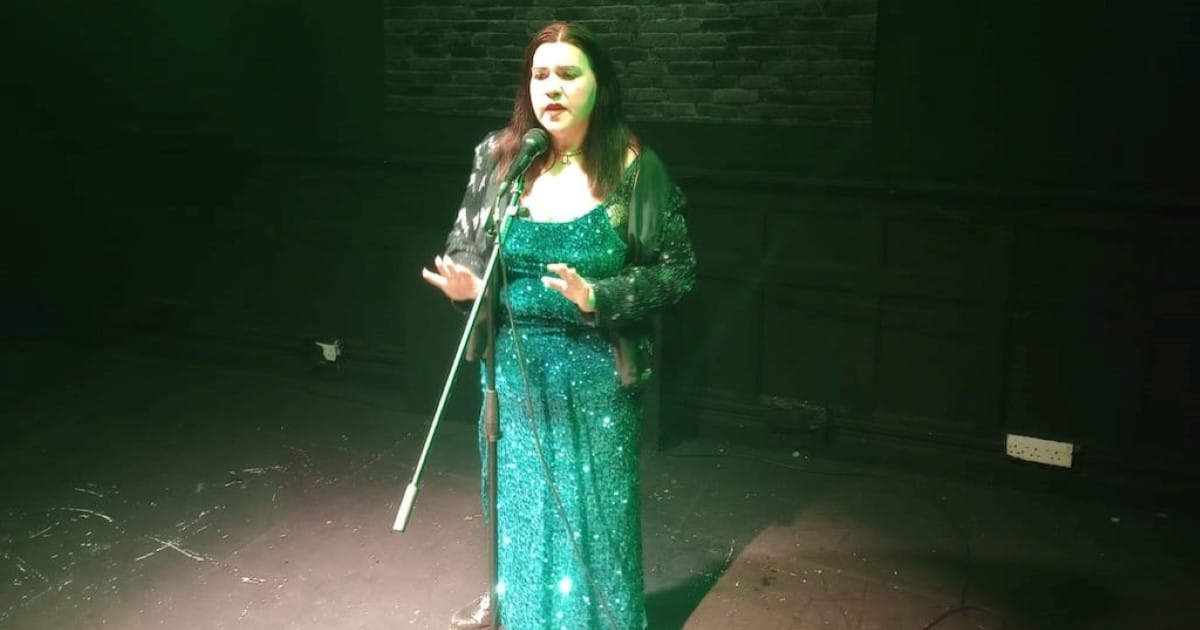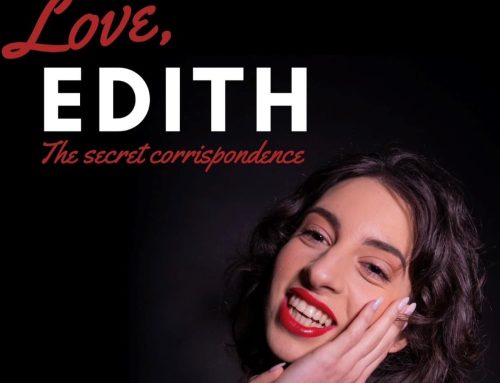“Whatever happened to Medusa?” introspects the central character in Emma Burnell’s underworked modern take on Greek myth. In the original version of Medusa’s story things do not work out well. The creature with snakes for hair, who turns anyone who looks at her into stone, gets her head chopped off by one of the greatest heroes of mythology, Perseus. But is Medusa really the monstrous figure of legend? Or is she a victim of the patriarchy, her demonic image the consequence of a male gaze that regards all assertive women as ogres?
Eighties music star and feminist idol Medusa (Emma Burnell again) is 50. After two decades living on an island off Norway the singer is on a come-back, tell-all, tour at the Camberwell Cabaret. Bedecked in sparkling emerald sequins, unashamed of her “saggy neck and bingo wings”, this one-time diva is going to name names and share her truth.
And quite a story it is (or could be if it were longer than 45 minutes). Raped at 17 by a Weinstein-like theatre mogul named Don (the Poseidon of the original myth), Medusa channels her anger into her debut album. Women like it so much she becomes an icon. Hers are the lyrics you quote when you break up with an abusive boyfriend. Men, in contrast, rebuke and demonise her. “They call me a monster” she says as she flees the patriarchy into self-imposed Scandinavian exile, but “the monster you think I am lies in your head”.
Lurking offstage in a blood-red baseball cap is knife-wielding incel radical Percy (Will Meadows). Dumped by his girlfriend, who he demeans as “just another Becky”, Percy wants to “take a stand for manhood”. He is to martyr himself for men’s rights by live-streaming Medusa’s gruesome murder. Can the middle-aged chanteuse convince Percy she is not the venomous serpent he thinks she is?
Meadows seeps toxic masculinity and dark menace as Percy, but the character is so underwritten the actor really has nowhere to take him. Burnell is an attractive stage presence, but perhaps her skills reside in writing more than performing. Medusa’s attempts at persuading Percy to spare her life have the passive-aggressive fatalism of someone who has spent 30 minutes too long on the line with a belligerent call centre.
The songs, including a version of Alice Cooper’s Poison, feel like filler in a plot that is a slimly drafted as it is absurd. The momentum is not helped by torpid direction from Michael Palmer. Burnell spends the show’s first half more or less fixed to the spot, as if she has been frozen in place on sighting her own monstrous reflection in the mirror. There is a gem of a good idea in this show, but the execution feels flawed.
Writer: Emma Burnell
Director: Michael Palmer
More Recent Reviews
The King of Hollywood. White Bear Theatre.
Douglas Fairbanks was a groundbreaking figure in early American cinema. Celebrated for his larger-than-life screen presence and athletic prowess, [...]
Gay Pride and No Prejudice. Union Theatre
Queer-inspired reimaginations of Jane Austen’s Pride and Prejudice are a more common species than one might initially imagine. Hollywood [...]
Knife on the Table. Cockpit Theatre.
Knife on the Table, Jonathan Brown’s sober ensemble piece about power struggles, knife violence, and relationships in and around [...]



